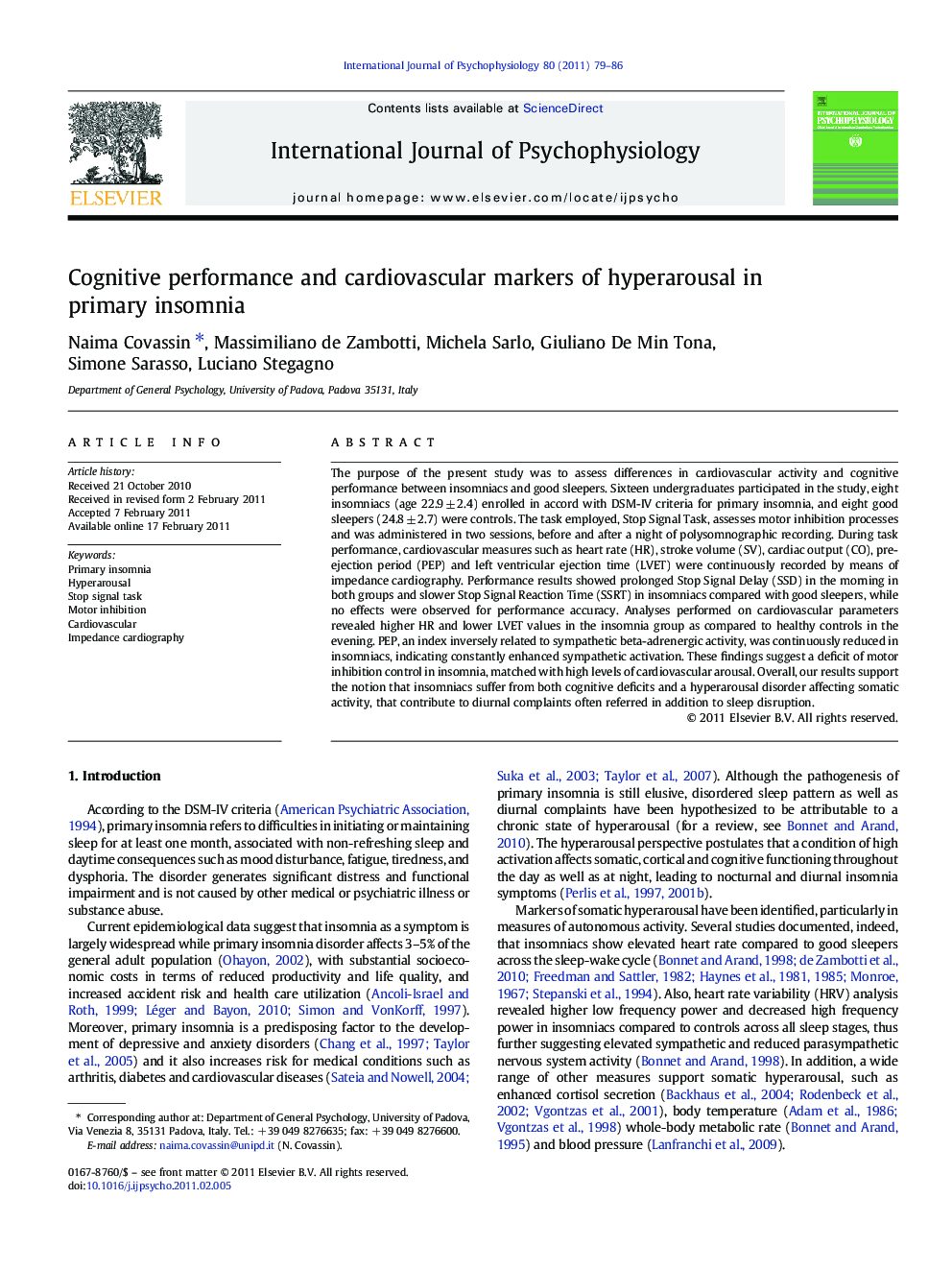| Article ID | Journal | Published Year | Pages | File Type |
|---|---|---|---|---|
| 930157 | International Journal of Psychophysiology | 2011 | 8 Pages |
The purpose of the present study was to assess differences in cardiovascular activity and cognitive performance between insomniacs and good sleepers. Sixteen undergraduates participated in the study, eight insomniacs (age 22.9 ± 2.4) enrolled in accord with DSM-IV criteria for primary insomnia, and eight good sleepers (24.8 ± 2.7) were controls. The task employed, Stop Signal Task, assesses motor inhibition processes and was administered in two sessions, before and after a night of polysomnographic recording. During task performance, cardiovascular measures such as heart rate (HR), stroke volume (SV), cardiac output (CO), pre-ejection period (PEP) and left ventricular ejection time (LVET) were continuously recorded by means of impedance cardiography. Performance results showed prolonged Stop Signal Delay (SSD) in the morning in both groups and slower Stop Signal Reaction Time (SSRT) in insomniacs compared with good sleepers, while no effects were observed for performance accuracy. Analyses performed on cardiovascular parameters revealed higher HR and lower LVET values in the insomnia group as compared to healthy controls in the evening. PEP, an index inversely related to sympathetic beta-adrenergic activity, was continuously reduced in insomniacs, indicating constantly enhanced sympathetic activation. These findings suggest a deficit of motor inhibition control in insomnia, matched with high levels of cardiovascular arousal. Overall, our results support the notion that insomniacs suffer from both cognitive deficits and a hyperarousal disorder affecting somatic activity, that contribute to diurnal complaints often referred in addition to sleep disruption.
Research highlights► Insomniacs show deficit of motor inhibition control. ► Insomniacs show cardiovascular hyperactivity. ► Primary insomnia affects both somatic and cognitive domains.
